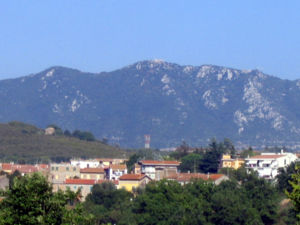A long-standing tradition here which we are starting today is a Friday poem. Mention earlier this week of the movie The Good Shepherd reminds me of the scene in which the Jim Angleton character (played by Matt Damon) discovers that his Yale Literature Professor Dr Fredericks (played by Michael Gambon) has plagiarized a poem.
The poem in question, Song, is by a real poet, Joseph Trumbull Stickney, and is about a cuckoo; this is very appropriate for a movie about spies and spying, since many species of cuckoo are brood parasites, laying their eggs in the nests of other birds. Gambon’s character was at that point in the film pretending to be someone other than he really was. Angleton had studied poetry at Yale and co-founded a poetry magazine, Furioso, while a student.
Joe Stickney (1874-1904) was a student of George Santayana at Harvard and later friends with him and with Henry Adams in Paris, where Stickney received the first doctorate of letters from the Sorbonne given to an American. Adams wrote of him: “[in Paris one could] totter about with Joe Stickney, talking Greek philosophy or recent poetry” (The Education, p. 1088) and, “Bay Lodge and Joe Stickney had given birth to the wholly new and original party of Conservative Christian Anarchists, to restore true poetry under the inspiration of the Gotterdammerung.” (The Education, p. 1090).
Stickney traveled in Europe and then taught Greek at Harvard, before dying suddenly of a brain tumour. Stickney’s poetry has an elegaic, autumnal feel about it, a sense of loss; it is writing from the end of an era, rather than from the start of one, as is Pounds’ or Eliot’s. Here is “Song“, written in 1902, and very appropriate for the season we in the northern hemisphere are now in:
A bud has burst on the upper bough
(The linnet sang in my heart today);
I know where the pale green grasses show
By a tiny runnel, off the way,
And the earth is wet.
(A cuckoo said in my brain: “Not yet.”)
I nabbed the fly in a briar rose
(The linnet to-day in my heart did sing);
Last night, my head tucked under my wing,
I dreamed of a green moon-moth that glows
Thro’ ferns of June.
(A cuckoo said in my brain: “So soon?”)
Good-bye, for the pretty leaves are down
(The linnet sang in my heart today);
The last gold bit of upland’s mown,
And most of summer has blown away
Thro’ the garden gate.
(A cuckoo said in my brain: “Too late.”)
POSTSCRIPT (added 2008-10-25): Since posting this, I have learnt about a recent setting to music of another elegaic Stickney poem, Mnemosyne, by the Russian-American violist Lev Zhurbin. The song is performed here by Zhurbin’s eclectic gypsy-influenced group, Ljova and the Kontraband, and the poem itself is here. The poem is about the decay of memories over time, and what I found most appealing about the setting is the final repetition of the central refrain, It’s autumn in the country I remember, a refrain which Stickney varies slightly each time it appears. (Thanks, JS).
POSTSCRIPT (added 2009-09-28): I wonder if Angleton met with Santayana in Rome when Angleton was engaged in espionage after WW II, using illegal bribery and much else besides to ensure (inter alia) that the Communist Party of Italy did not win the post-war elections. They would probably have agreed on politics. And, of course, Angleton, like Santayana, was a child of two cultures, American and Hispanic, since Angleton’s mother was Mexican.
POSTSCRIPT (added 2010-11-03): I encounter something which suggests it would be more surprising for Angleton NOT to have met Santayana in Rome than otherwise. From M. M. Kirkwood’s account of Santayana’s life and works [1961]:
So Santayana’s sympathy and gay human spirit remained unchanged. He was responsive and generous always. Not only [page-break] close friends like Daniel Cory, and distinguished creatures like the Marchesa Iris Origo, were warmly received in Santayana’s room with the Blue Sisters [in Rome]. Tom, Dick, and Harry were also welcomed, for of the numbers of American soldiers who were calling on him in 1945 he wrote in happy vein: “As to society, I have never received so many visits as the American soldiers in Rome have made me. It has been very pleasant to see so many young faces and to autograph so many books, which is what they usually ask me to do.” [pp. 172-173]
References:
Henry Adams [1907/1983]: The Education of Henry Adams. New York, NY, USA: The Library of America.
M. M. Kirkwood [1961]: Santayana: Saint of the Imagination. Toronto, Canada: University of Toronto Press.

